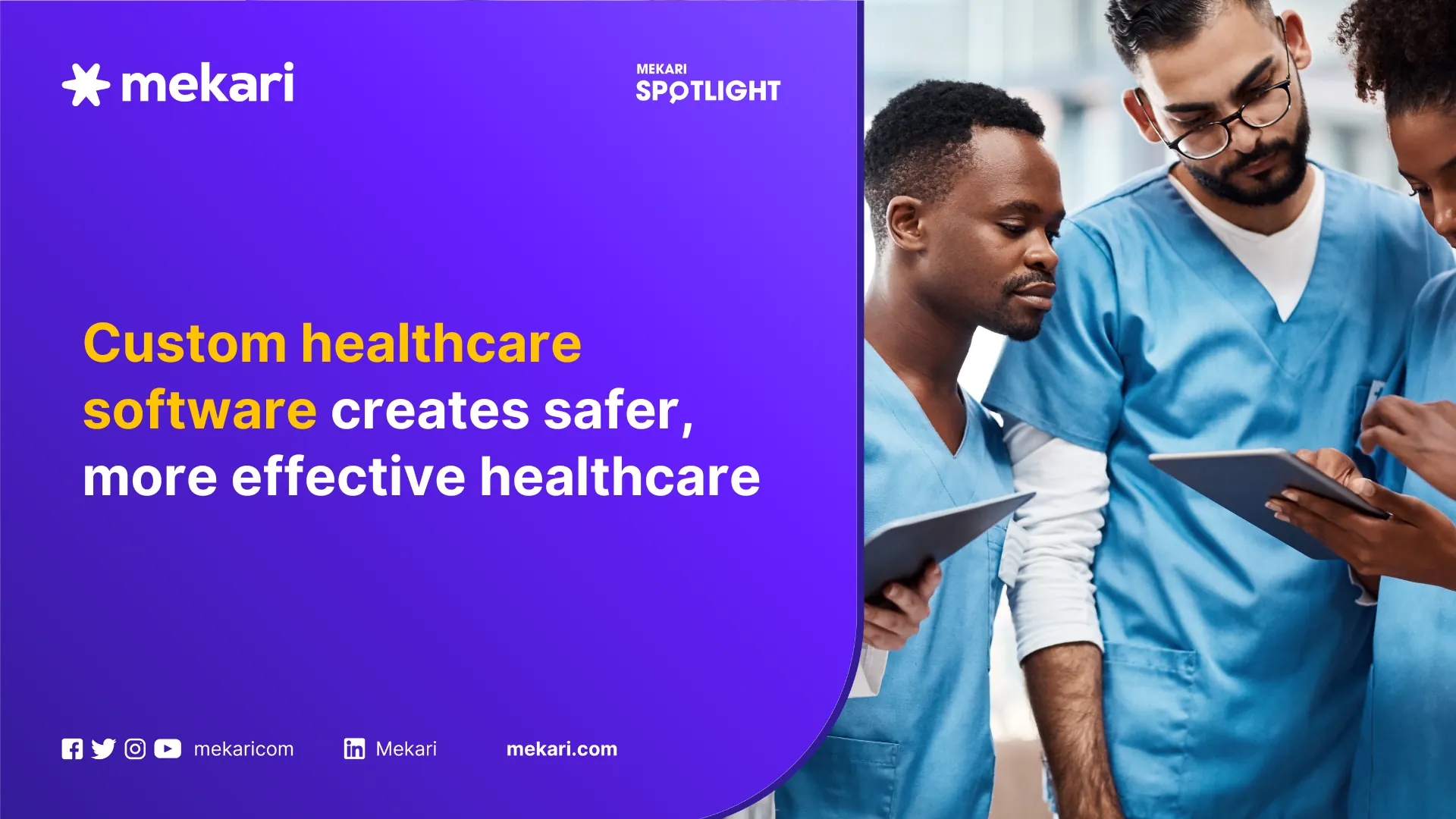Mekari Insight
- Unlike off-the-shelf options, custom healthcare software evolves with industry needs, ensuring long-term compliance, seamless integration, and cost-effective scalability.
- Custom healthcare software reduces errors, speed up diagnoses, and enhance coordination—leading to safer, more effective healthcare.
- Custom solutions ensure strict adherence to regulations, with strong encryption and secure data exchange to protect patient trust.
- Mekari Officeless offers custom-built healthcare software – ensures secure, scalable, and user-friendly solutions tailored to your needs.
Custom healthcare software development services creates tailored digital solutions that meet the specific needs of healthcare providers, improving efficiency, patient care, and compliance.
Unlike off-the-shelf options, custom solutions address unique challenges like EHR management and telemedicine integration. With growing demands for security and personalised care, investing in customised software is a strategic necessity.
Here’s what you need to know before making the right choice.
Understanding custom healthcare software
Modern healthcare has unique challenges that off-the-shelf software can’t always solve. Custom healthcare software development services creates tailored solutions that improve efficiency, ensure compliance, and enhance patient care.
Below, we explore the key types available.
1. Electronic Health Records (EHR) Systems
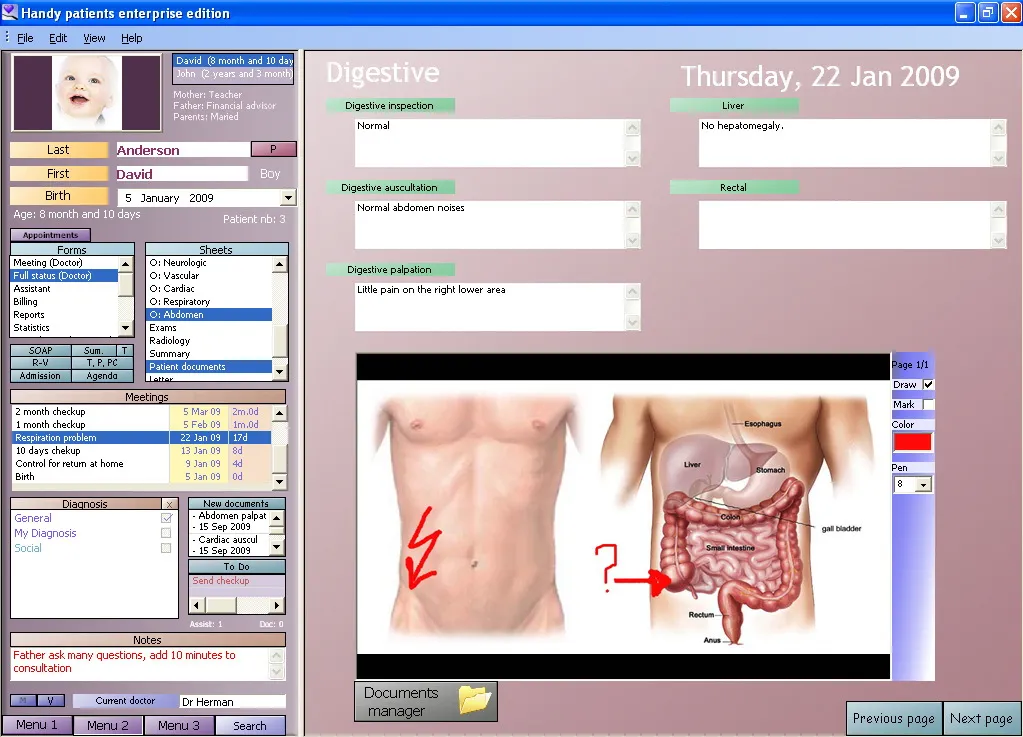
This system is used to centralize patient data for seamless access across healthcare providers, ensuring improved coordination and decision-making.
Features:
- Interoperability with labs, pharmacies, and insurance systems to streamline workflows and reduce data silos.
- AI-powered analytics for identifying disease trends, patient risks, and predictive diagnostics.
- Compliance with industry standards like FHIR (Fast Healthcare Interoperability Resources) and HL7 (Health Level Seven International) for secure and structured data exchange.
Impact:
- Improves care coordination across healthcare teams.
- Enhances patient safety by providing accurate, real-time access to medical histories.
2. Telemedicine platforms
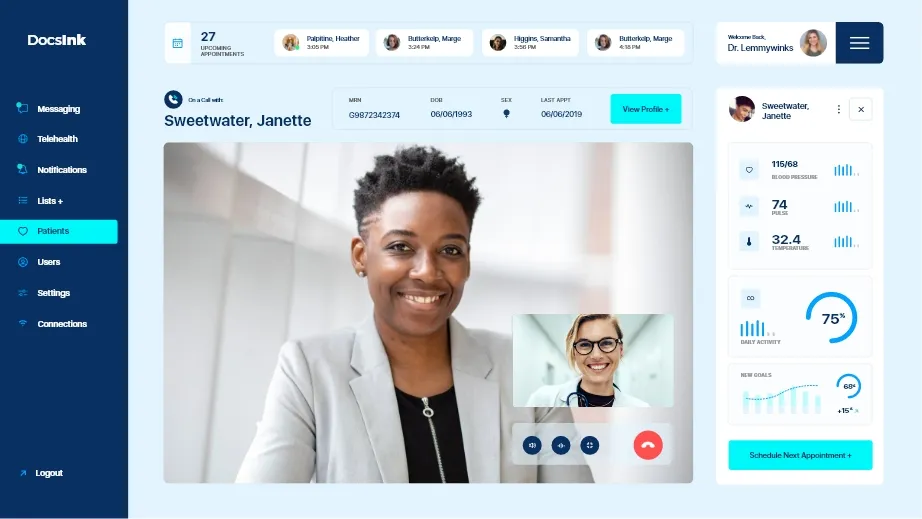
This platform is to facilitate remote consultations, diagnoses, and continuous patient monitoring, making healthcare more accessible.
Features:
- High-definition video conferencing with screen-sharing capabilities for effective remote diagnosis.
- Integration with wearable devices (e.g., glucose monitors, ECG trackers) for real-time health data monitoring.
- Automated billing and insurance verification to streamline payment processes.
Impact:
- Reducing patient travel time and costs.
- Expands healthcare accessibility to rural and underserved populations.
3. Patient Management Systems (PMS)
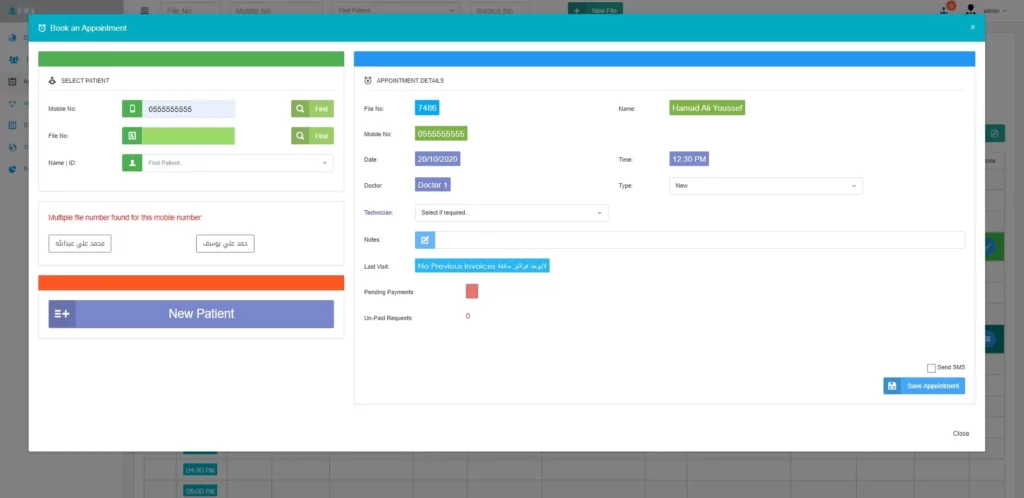
The purpose of PMS is to streamline administrative tasks, from appointment scheduling to patient interactions, improving hospital efficiency.
Features:
- Self-service patient portals for booking appointments, accessing medical records, and requesting prescription refills.
- Real-time hospital bed management to optimize resource allocation.
- Automated SMS/email reminders to reduce no-show rates and missed appointments.
Impact:
- Reduces administrative workload, allowing staff to focus on patient care.
- Lowers patient no-show rates, ensuring better appointment management.
- Improves hospital operational efficiency and patient satisfaction scores.
4. Clinical Decision Support Systems (CDSS)
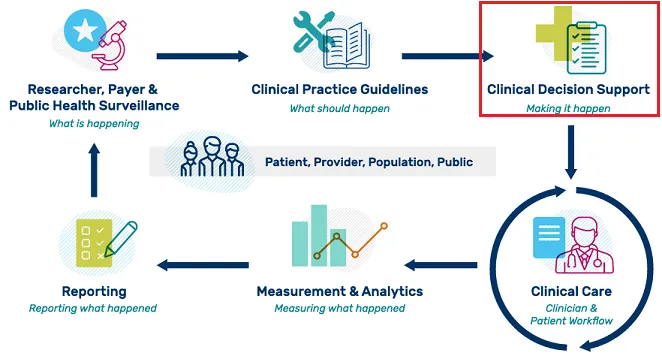
CDSS is known to enhance diagnostic accuracy and treatment planning by leveraging data-driven insights.
Features:
- Machine learning models analyze EHR data to flag high-risk patients for proactive care.
- Drug interaction alerts prevent adverse medication effects.
- Integration with imaging systems enables AI-assisted radiology and pathology analysis.
Impact:
- Reduces misdiagnosis rates, leading to more accurate treatments.
- Shortens hospital stays through early intervention and improved care decisions.
- Enhances physician confidence in clinical decision-making.
5. Revenue Cycle Management (RCM) Software
This software is beneficial to optimize financial operations, reduce claim denials, and improve billing efficiency for healthcare providers.
Features:
- Automated claims submission with error detection to minimize rejection rates.
- Predictive analytics identifies underpaid claims and reimbursement trends for optimized revenue flow.
- Patient payment portals with flexible financing options to enhance billing transparency.
Impact:
- Cuts claim denials, ensuring faster reimbursement.
- Boosts revenue capture, improving hospital financial health.
- Reduces billing staff workload, streamlining financial operations.
Benefits of custom solutions over off-the-shelf products
Generic software may seem convenient, but it rarely meets the unique demands of a business. Custom software is built specifically for your needs, offering greater efficiency, scalability, and seamless integration.
1. Designed for your unique needs
Off-the-shelf software is made for the masses, but custom solutions are built around your workflows, challenges, and goals.
- Boosted efficiency: By eliminating unnecessary features, businesses cut manual tasks and streamline operations.
- Competitive edge: Custom features help businesses stand out, offering capabilities competitors with generic tools can’t match.
- Cost savings over time: No unnecessary licensing fees or paying for features you don’t use—businesses save up in the long run.
2. Scalable and future-proof
Custom software grows with your business, adapting to increasing workloads, new users, and evolving market demands.
- Handles growth effortlessly: Scalable systems reduce downtime and ensure smooth operations as business needs expand.
- Easily integrates new technologies: As industries evolve, businesses can add AI, automation, or data analytics without costly software replacements.
- Quick market adaptability: With built-in flexibility, businesses can respond faster to market shifts and customer needs.
3. Seamlessly integrates with existing systems
One of the biggest downsides of off-the-shelf software is integration issues. Custom software is designed to fit into your existing infrastructure without disruptions.
- Smooth data flow: Integrated systems eliminate silos, improving data accuracy and reducing redundant work.
- Third-party compatibility: Custom software works with your current CRM, ERP, and financial tools without compatibility headaches.
- Minimized downtime: Tailored integration ensures smooth implementation and upgrades without costly delays.
Key considerations before choosing a custom software developer
Selecting the right developer for healthcare software is a big decision. The healthcare industry has unique challenges, from strict regulations to the need for seamless system integration.
Finding a partner who understands these complexities ensures a smooth, compliant, and effective software solution.
1. Industry knowledge and experience
Healthcare software must comply with regulations like HIPAA, GDPR, and FDA guidelines while fitting seamlessly into medical workflows.
- Why it matters: Non-compliance can lead to legal issues, financial penalties, and operational setbacks.
- What to look for: A partner with experience in healthcare software, such as EHR systems or telemedicine platforms, who understands security, compliance, and industry best practices.
2. Technical expertise
A skilled development team is essential for building scalable, secure, and high-performing healthcare software.
- Relevant skills: Look for expertise in programming languages, cloud platforms, and healthcare-specific technologies like HL7 and FHIR.
- Why it matters: A technically proficient team ensures efficiency, faster development, and seamless integration with existing systems.
3. Security and compliance
Protecting patient data and ensuring regulatory compliance is critical in healthcare software development.
- Regulatory adherence: Your partner should follow laws like HIPAA and GDPR, using encryption, secure APIs, and access controls.
- Why it matters: Data breaches are costly and can damage trust. A strong focus on security minimizes risks and protects sensitive information.
4. Scalability and future-proofing
A good software solution should grow with your organization and adapt to new technologies.
- Growth accommodation: The system should handle increasing data volumes and new users without performance issues.
- Future technologies: Ensure the software is designed to integrate AI, IoT, and other emerging technologies.
5. User-centric design
Healthcare software should be easy to use for both medical professionals and patients.
- Intuitive interfaces: A user-friendly design reduces errors and improves efficiency in clinical settings.
- Patient engagement: Features like mobile apps and patient portals enhance access to care and improve overall experience.
6. Integration capabilities
Healthcare systems rely on seamless data exchange between various platforms.
- System compatibility: The software should integrate with EHRs, billing systems, and other essential tools.
- Why it matters: Proper integration reduces manual work, minimizes errors, and improves operational efficiency.
7. Cost considerations
Balancing cost with long-term benefits is essential when choosing a development partner.
- Total cost of ownership: Consider development, maintenance, and upgrade expenses.
- ROI focus: Custom solutions often provide a better return on investment by addressing specific business needs effectively.
Conclusion
Investing in custom healthcare software development services is not just about technology—it’s about ensuring security, compliance, and a seamless user experience for both healthcare professionals and patients.
With rising regulatory demands and evolving industry needs, choosing a tailored solution ensures better efficiency, improved patient outcomes, and long-term adaptability.
If you’re looking for a trusted partner to develop secure, scalable, and user-friendly healthcare software, Mekari Officeless is here to help.
With deep industry expertise, cutting-edge technology, and a commitment to compliance, Mekari Officeless delivers custom solutions designed to fit your unique healthcare needs.
Contact us today to build a future-proof healthcare system that works for you!
References
Ossisto. ”The Complete Overview of Custom Healthcare Solutions”
